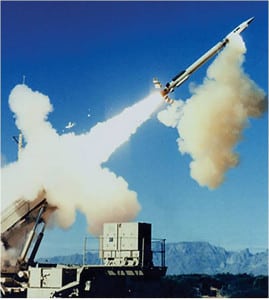The Chinese military sees major weaknesses in its own cyber domain, according to a new report from RAND.China’s People’s Liberation Army (PLA) sees cyber, along with space, and electronic warfare (EW) capabilities as increasingly vital elements of its ability to deter or defeat a technologically advanced adversary in a future information war. However, the PLA has a clear perception of Chinese cybersecurity weaknesses, the report said.The report highlighted part of the perceived vulnerability is linked to a belief that offense…
Contract Updates
BAE Systems Space & Mission Systems Inc. (Boulder, Colorado) – $48,000,000
BAE Systems Space & Mission Systems Inc., Boulder, Colorado, was awarded a $48,000,000 firm-fixed-price contract for the study, design, development, enhancement, testing, and procurement of advanced communication-electronics technologies. Bids were solicited via the internet with one received. Work locations and…
Portus Stevedoring LLC (Jacksonville, Florida) – $8,292,583
Portus Stevedoring LLC, Jacksonville, Florida, is awarded a not-to-exceed $8,292,583 firm-fixed-price, indefinite-delivery/indefinite-quantity contract with a five-year ordering period for stevedoring and related terminal services. This contract provides for full range of stevedoring and related terminal services to include the receipt,…
Foster Miller doing business as QinetiQ North America (Waltham, Massachusetts) – $11,310,230
Foster Miller, doing business as QinetiQ North America, Waltham, Massachusetts, is awarded an $11,310,230 firm-fixed-price modification to a previously awarded indefinite-delivery/indefinite-quantity contract (N00174-21-D-0019) to exercise Option Year Four for production, engineering support, and post-production support of the MK 2 Man…
EnergySolutions Services Inc. (Oak Ridge, Tennessee) – $13,336,650
EnergySolutions Services Inc., Oak Ridge, Tennessee, is being awarded a $13,336,650 firm-fixed-price, indefinite-delivery/indefinite-quantity contract action (N42158-25-D-E001) for nuclear services for the processing, recycling and disposal of radiologic materials through disassembly, decontamination, metal melting, compaction, incineration, resin sluicing/dewater, bulk waste assay…

 By
By 











